Even after gaining its independence from Russia, Turkmenistan upheld its tough stance on cannabis. To this day, the penalties for using, selling or growing cannabis are stiff, with lengthy prison sentences in place even for limited personal use. The terrible prison conditions also act as a powerful deterrent for Turkmenistan’s people.
- Capital
- Ashgabat
- Population
- 6,431,000
- CBD Products
- Illegal
- Recreational cannabis
- Illegal
- Medicinal cannabis
- Illegal
- Cannabis laws in Turkmenistan
- Can you possess and use cannabis in Turkmenistan?
- Can you sell cannabis in Turkmenistan?
- Can you grow cannabis in Turkmenistan?
- Type of cannabis grown in Turkmenistan
- Is CBD legal in Turkmenistan?
- Can cannabis seeds be sent to Turkmenistan?
- Medicinal cannabis in Turkmenistan
- Industrial hemp in Turkmenistan
- Good to know
- Cannabis history
- Attitudes towards cannabis
- Will it be legalised in the future?
Cannabis laws in Turkmenistan
Can you possess and use cannabis in Turkmenistan?
It’s illegal to possess or use cannabis in Turkmenistan. The Criminal Code states that the offender who uses “narcotic drugs or psychotropic substances” will be given a prison sentence of up to five years.
This is adjusted to three to 10 years if the individual:
- Committed the same act repeatedly
- Was physically violent, or threatened violence to others
- Was using cannabis “in relation to a minor” or other people
If, while using cannabis, the offender seriously harmed someone or caused his death, the sentence is increased to six to 12 years in prison.
If no harm was caused, and the individual voluntarily surrendered the drugs (for personal use only), then the sentence is waived.
Despite the harsh sentences, hashish consumption is relatively commonplace, and there’s plenty of cannabis growing wild across the country. However, the threat of prison is taken seriously in Turkmenistan. Prior to 2006, the country was ruled by President Saparmurat Niyazov who was notorious for his oppressive regime. In prisons, inmates were subject to torture, beatings, starvation and overcrowding, leading in many instances to their death.
While prison conditions may have improved since this time, it’s a risk that many regard as not worth taking.
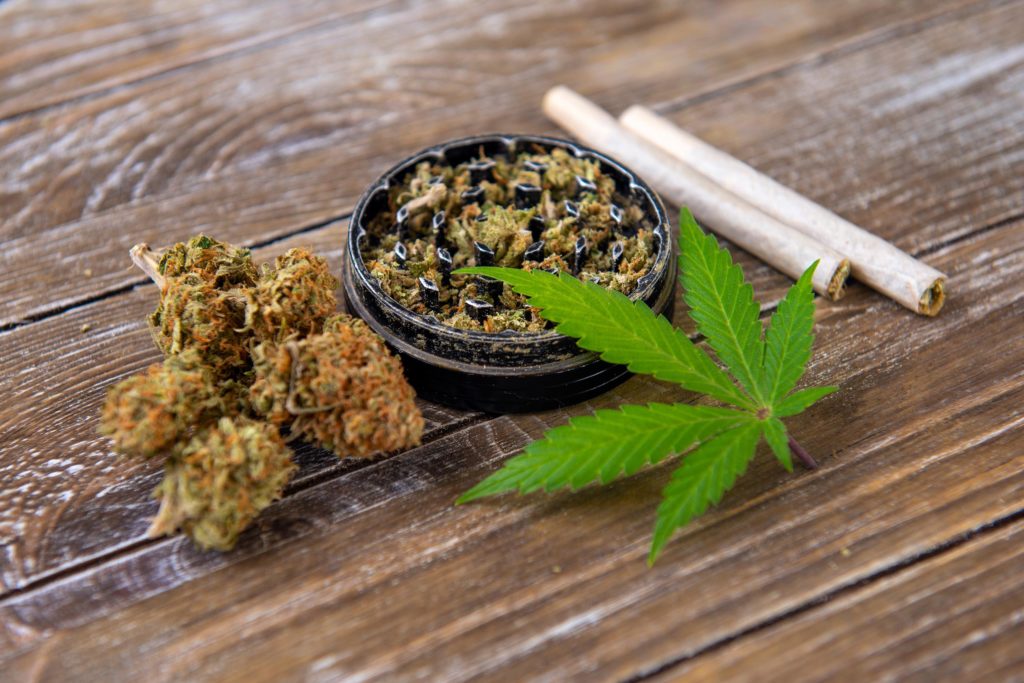
Can you sell cannabis in Turkmenistan?
Likewise, the Criminal Code forbids the sale or supply of cannabis in the country. All aspects of the sales process – from production of the drug, to storage and transportation – are regarded as a criminal offence and punishable with a prison sentence of three to 10 years. The court may also rule to confiscate the offender’s property.
The sentence is increased to six to 15 years (with confiscation of property) if the offender:
- Committed the offence repeatedly
- Was working as part of an organised group
- Was operating on a large scale
If the offender was working in a job where he was “entrusted in connection with his official position or under protection”, or the amount of trafficking was particularly large, then the sentence is further increased to 12 to 20 years in prison, plus confiscation of property. Until 1999, the death penalty was also in place for this sort of crime.
Although the penalties are severe, this doesn’t stop cartels from operating in the country. Turkmenistan is a ‘transit’ country; which means it’s used as a route for traffickers smuggling drugs from Afghanistan to locations like Iran or Russia.
Opium is the more commonly smuggled substance though quantities of hashish also pass through Turkmenistan. Although the country cultivates its own cannabis, it’s not regarded as a major producer.
Most illegal drug seizures occur along the Afghanistan or Iran borders. Both borders are extensive, remote and partly mountainous – which presents a challenge for Turkmenistan’s authorities. The country’s continued refusal to fully cooperate with the international community further impedes the efforts to stop the trafficking.
Can you grow cannabis in Turkmenistan?
It’s illegal to cultivate cannabis in Turkmenistan. The law states that anyone caught doing so can be punished “with correctional labour for up to two years, or imprisonment for up to three years.”
If the individual repeatedly cultivates cannabis, is operating with a group of other people, or is growing on a large scale, this sentence is increased to three to eight years in prison.
However, cannabis grows wild across many parts of Turkmenistan. No official figures exist regarding its growth acreage and this is largely due to the nation’s notorious resistance to international cooperation.
Type of cannabis grown in Turkmenistan
It’s believed that several types of cannabis grow wild in Turkmenistan, particularly around rivers like the Amu Darya. Rivers provide vital water in an otherwise cold, arid landscape. In the northern regions, C. ruderalis is thought to be the most common type of cannabis, as it’s well suited to cold climates. In the south-east of the country, C. indica sp. Afghanica is more prevalent. This biotype is easily identifiable, thanks to its short, squat appearance, dense flower structure and high resin production.
“Dichka” is also found in parts of Turkmenistan (particularly in the south, around the city of Kushka). This strain of cannabis was highly prized in the former Soviet republics. When Turkmenistan was under Russian control, Soviet authorities repeatedly attempted to eradicate the dichka growing in the wild, but the sheer abundance of the plant made total elimination impossible.
Is CBD legal in Turkmenistan?
The law doesn’t make any distinction between CBD and cannabis. Therefore, CBD is illegal to use, sell or purchase in the country.
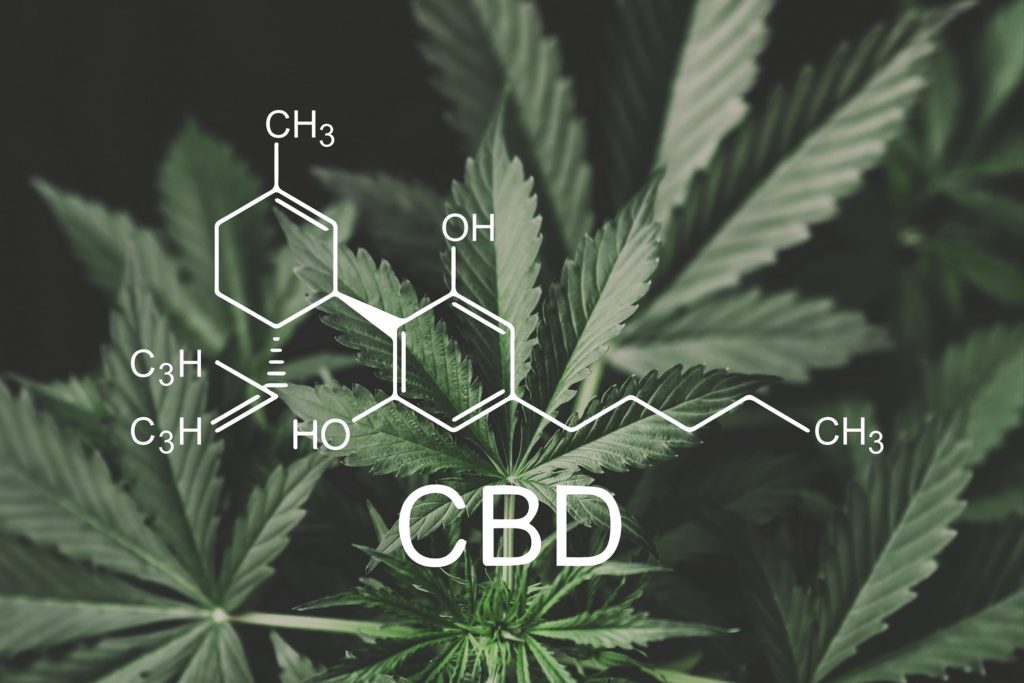
Can cannabis seeds be sent to Turkmenistan?
As with CBD, Turkmenistan’s law doesn’t distinguish cannabis seeds from any other part of the plant. This means they’re illegal to use, sell or buy, and cannot be mailed into the country.
Medicinal cannabis in Turkmenistan
There is currently no medicinal cannabis programme in Turkmenistan; nor has there been any indication that the government will introduce one any time soon.
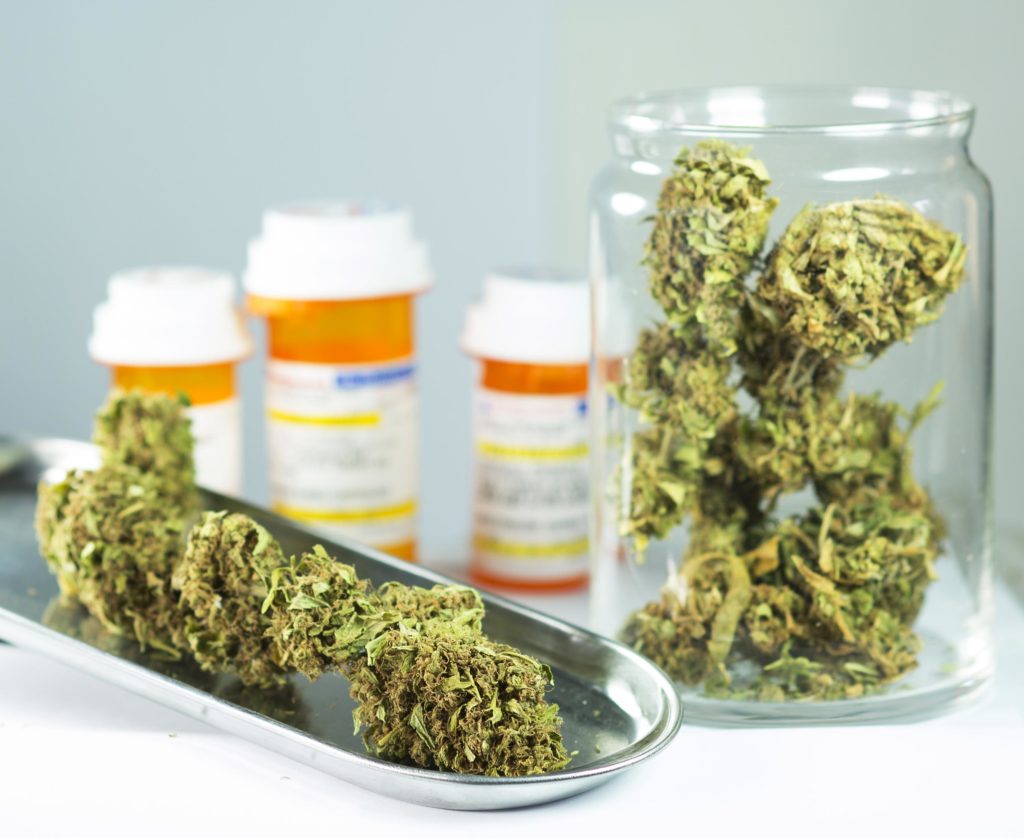
Industrial hemp in Turkmenistan
It’s illegal to grow hemp in Turkmenistan. However, with other countries in the area exploring the option of legalising hemp for industrial purposes, Turkmenistan may follow suit in the future – particularly in light of the plant’s profit-making potential.
Good to know
If you are travelling to Turkmenistan (or currently live there), you may be interested to know the following:
- Cannabis has been used in Turkmenistan for centuries. Traditionally, its use was associated with mainly older men; though nowadays this has shifted, with more younger people consuming it.
- Not much data exists regarding cannabis use in Turkmenistan. UNODC figures from 1998 stated that 0.3% of the adult population used cannabis, which was significantly lower than the rest of Central Asia. However, the accuracy of this figure has been contested, and it may well have changed since then.
- Although recent figures are hard to come by, a 2007 study claimed that 19% of Turkmenistan’s prison population were incarcerated on drugs-related charges.
Cannabis history
A few archaeological discoveries in Turkmenistan suggest that cannabis has been used in the country for centuries. However, whether the remnants on these digs were definitely cannabis or not is something that has been contested in recent years.
History documented the arrival of the Scythians in the area from 2,000 BCE. The Scythians were known to have used cannabis, so it seems likely that they would have brought the plant with them.
After 800 BCE, records show an increase in cultural exchange between China and the nomadic Central Asian tribes. As such, Chinese agricultural practices were introduced into the region, and Scythian use of cannabis began to evolve in earnest.
Soma/haoma – an intriguing discovery
In 1976, the Russian archaeologist Viktor Sarianidi made a major discovery near the Amu Darya river. He found remnants of the ancient Oxus civilisation and among the artefacts that he located were traces of cannabis, inside pieces of pottery.
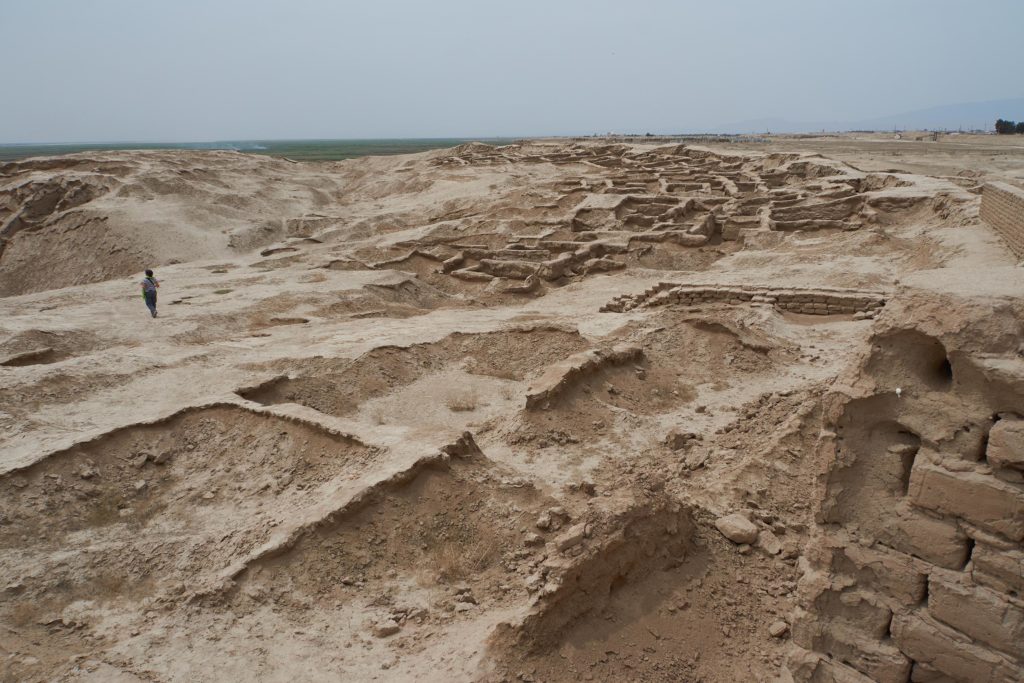
Sarianidi stated that the Oxus’ religion was a form of fire worship, which later developed into Zoroastrianism (the Persian Empire’s official religion). He claimed that cannabis, along with other entheogenic plants, were used back then to make an intoxicating drink called haoma (or sometimes soma).
Three ceramic bowls were discovered with traces of cannabis in them, as well as a basin, and several items that looked as though they’d been used for straining the juices of the plants. Hemp seeds were also found.
However, the substances couldn’t be identified in a laboratory, which jeopardised Sarianidi’s theory. Also, experts said that the seeds couldn’t have been hemp, as they were too small.
This caused major debate in the scientific world with some arguing that ancient strains of cannabis often produced smaller seeds as had been demonstrated on other prehistoric excavations.
Regardless of this fact, it couldn’t be categorically proved that Sarianidi’s ancient substances were cannabis. As such, the true nature of the ancient drink haoma remains a mystery. It’s been suggested that it was made of a mixture of psychoactive plants, and was used for religious rituals.
It’s also worth noting that, when the Zoroastrian religion became formally established (around 575 BCE), references to haoma ceased. Instead, references to bhanga took over. Bhanga is an ancient word for cannabis.
Attitudes towards cannabis
Given that Turkmenistan is still largely a closed country, it’s difficult to say exactly how its residents feel about cannabis. Certainly, hashish seizures are significantly smaller than other drugs seizures, which suggests that the authorities don’t regard it as such a big problem as opium, for example.
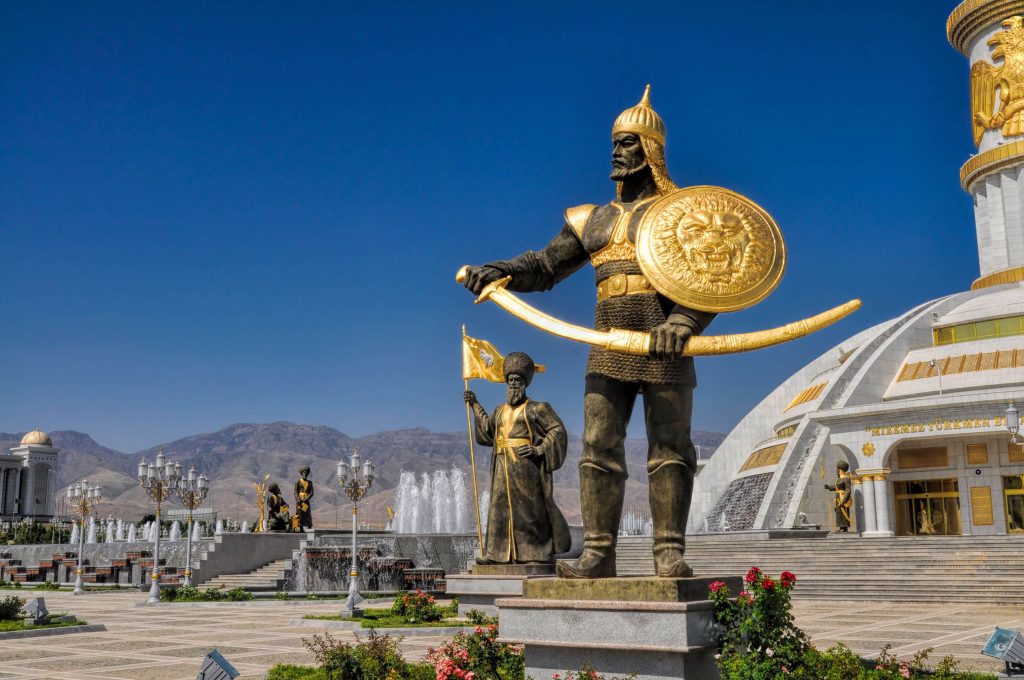
Like many parts of Central Asia, Turkmenistan has an ancient history of cannabis cultivation and use. While this was undoubtedly frowned upon during the Soviet era, there’s a chance that Turkmenistan’s people still have a lingering fondness for the plant, and use it for a variety of purposes.
Will it be legalised in the future?
Turkmenistan’s current cannabis laws are severe, so it seems unlikely that the country’s government will change them any time soon. However, as many other nations around the world are capitalising on the ‘green rush’ (particularly the profit potential of industrial hemp), there’s a possibility that Turkmenistan may have a change of heart in the future, and see cannabis as a way of boosting the country’s economy.
- Disclaimer:While every effort has been made to ensure the accuracy of this article, it is not intended to provide legal advice, as individual situations will differ and should be discussed with an expert and/or lawyer.







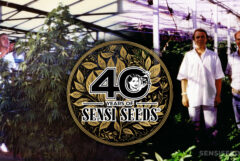



Interesting.
They should legalize opium there.
cannabis only